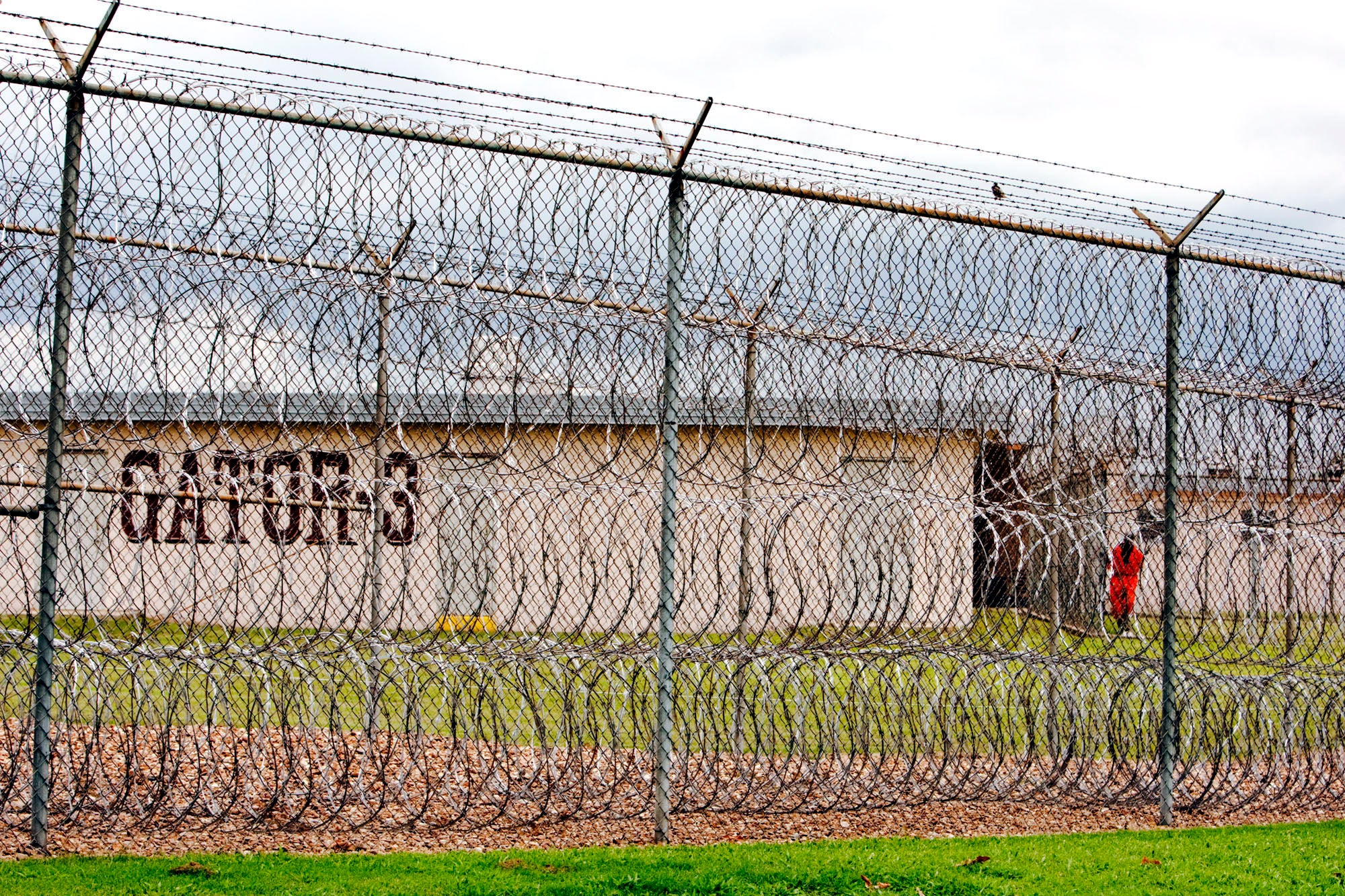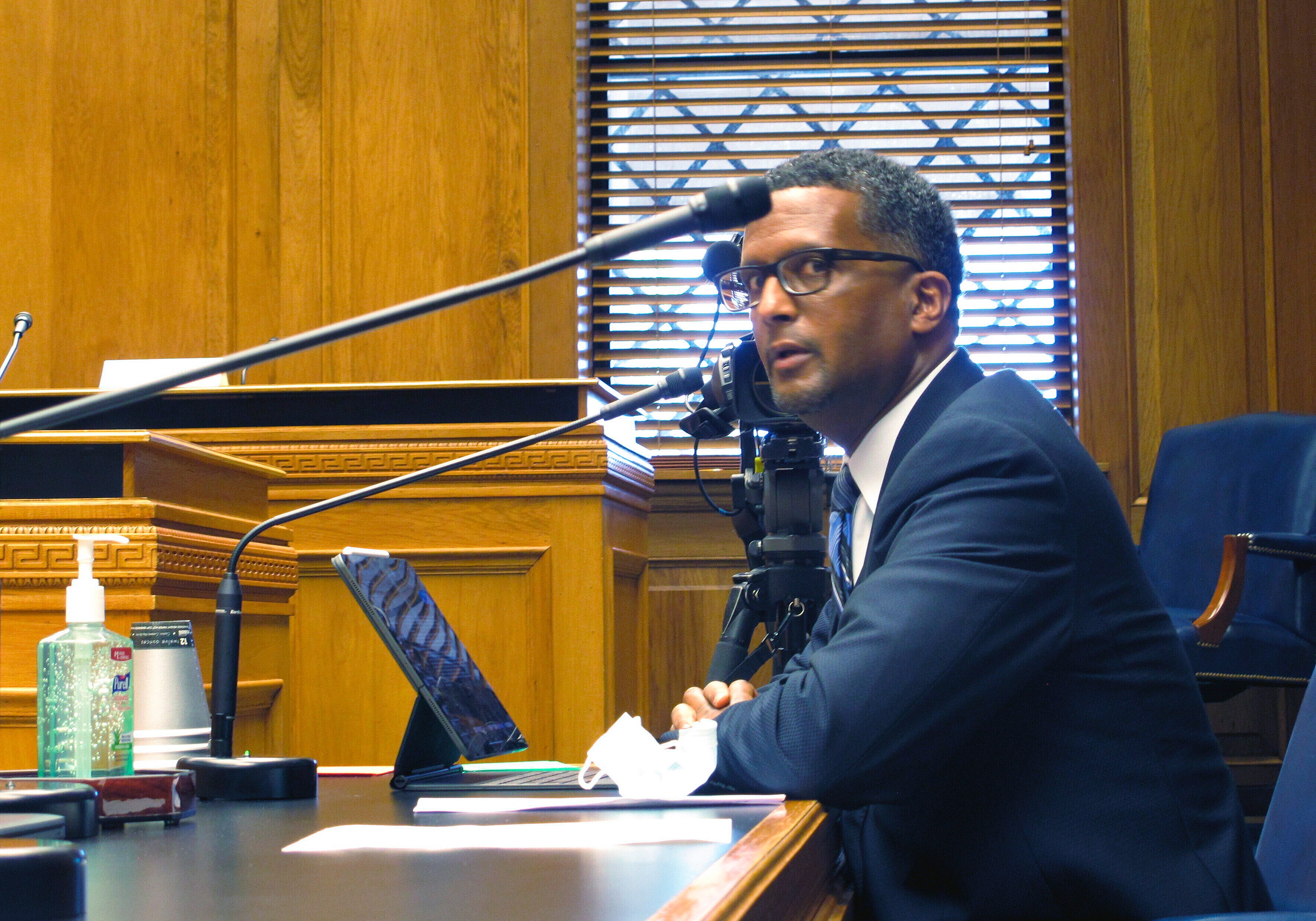Four states voted to end slavery as a form of criminal punishment. Here’s why Louisiana voters didn’t
A renewed abolitionist movement closed 13th Amendment ‘loopholes’ that allow slavery as punishment for a crime. But a confusingly worded amendment to Louisiana’s constitution sparked fears that the measure could do the opposite of what it intended, Alex Woodward reports


The 13th Amendment of the US Constitution formally abolished slavery, but since it was enacted in the aftermath of the US Civil War in 1865, a notable exception has remained: Slavery is still allowed “as punishment for crime whereof the party shall have been duly convicted.”
Many state constitutions include similar language, meaning a devastating “loophole” has effectively kept slavery alive with forced labour in prisons across the US.
That exception remains in 20 states, allowing incarcerated workers “to be exploited, underpaid, and excluded from workplace safety protection laws,” according to a report from the American Civil Liberties Union and the University of Chicago Law School Global Human Rights Clinic.
This year, voters in Alabama, Oregon, Tennessee and Vermont have voted to remove slavery language in their state constitutions, a victory for a renewed slavery abolition movement campaigning to close those loopholes in every state and strike out exceptions in the 13th Amendment.
But voters in Louisiana rejected a similar amendment after facing an unlikely opponent: the state lawmaker who championed the measure in the first place.
The proposal was rejected by roughly 61 per cent of Louisiana voters, with 39 per cent of voters in support.
Louisiana’s constitution currently states that “slavery and involuntary servitude are prohibited, except in the latter case as punishment for a crime.”
The amendment proposed changing that language to “slavery and involuntary servitude are prohibited” but that it “does not apply to the otherwise lawful administration of criminal justice.”
Democratic state Rep Edmond Jordan said he feared that the proposed wording would end up doing the opposite of what his measure intended.
“The way that the ballot language is stated is confusing. And the way that it was drafted it could lead to multiple different conclusions or opinions,” he said in a statement.

Public policy nonprofit group Council for a Better Louisiana, which urged voters to reject the amendment, said it is “an example of why it is so important to get the language right when presenting constitutional amendments to voters.”
State legislators are preparing to introduce another attempt with clarified language that could end up on Louisiana ballots as early as next year.
The Abolish Slavery National Network, which has led the End the Exception campaign to remove slavery language from state constitutions, continued to call on voters to support the amendment.
A statement from the group and others who supported the amendment told voters “do not be confused” by the proposal, arguing that “the otherwise lawful activity of the criminal justice system” in place of “except” would not allow for the expansion of slavery.
“This amendment is only a first step in dismantling this aspect of what we consider an extremely predatory system,” the groups said in a statement last month.
Curtis Davis – who spent nearly 26 years in Louisiana State Penitentiary, the site of a former plantation fueled by slave labour that is now among the largest maximum security prisons in the country – is the executive director of the Decarcerate Louisiana and an organiser with the End the Exception coalition.
In a call with reporters last month, he called arguments against the Louisiana amendment “disingenuous at best and intellectually dishonest at worse.”
“The clear legislative intent of this initiative is to remove slavery and involuntary servitude from the constitution,” he said. “Our opponents of our initiative have orchestrated a confusion campaign to mislead voters about the meaning of the bill.”
He said that opposition to the amendment has suggested that an activist judge could sentence people to slavery and “say that that’s actual lawful activity of the criminal justice system,” but that disregards wording in the bill that probits slavery.
“If slavery and involuntary servitude are prohibited, period, than the otherwise lawful activity of the criminal justice system would be something other than the two outlawed parts of our amendment,” he said.
Incarcerated workers in Louisiana prisons earn as little as 2 cents an hour, according to a report from the American Civil Liberties Union and the University of Chicago Law School Global Human Rights Clinic.
But every incarcerated person at Angola, a vast majority of whom are Black, begins their work in the fields, where enslaved people worked hundreds of acres of crops before the property began functioning as a prison in 1880.
Field labourers, supervised by correction officers on horseback, have few chances of promotion to other work, with virtually no access to water, rest or restrooms, according to the report.
And it has been a lucrative business for the state, the report found. A poultry processing plant relied on incarcerated workers to avoid shutting down during the Covid-19 pandemic. A commodities trader bought nearly $2.5m worth of corn and soybeans from the state’s prison industry between 2017 and 2020. And livestock auction companies purchased at least $5m in livestock raised by prison labourers within that same time period.
Today, roughly 800,000 of the more than 1.2 million people incarcerated in state and federal prisons are forced to work, generating roughly $11bn annually.
“Even though slavery was abolished, it truly was just a transfer of ownership from chattel slavery and private ownership to literally state-sanctioned slavery,” Abolish Slavery National Network organiser Savannah Eldrige said in a statement to The Independent. “People ask us, why do we call this slavery? Because that is exactly what it is.”
The Abolish Slavery National Network said the group “looks forward to having a new ballot initiative in front of Louisiana voters as soon as possible so they can finish what they started and abolish slavery in the state once and for all,” according to a statement from the group.
Alabama, Oregon, Tennessee and Vermont join Colorado, Nebraska and Utah to remove similar slavery language in their state constitutions.
Join our commenting forum
Join thought-provoking conversations, follow other Independent readers and see their replies
Comments


Bookmark popover
Removed from bookmarks